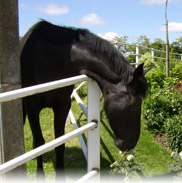- Home
- Areas of Work
- ADR / Mediation
- Arbitration & Adjudication Law
- Aviation Law
- Burials, Cemeteries, Churchyards & Ecclesiastical Law
- Chancery
- Civil Law
- Commercial Law
- Coroners' Inquests
- Criminal Law
- Direct Access
- Education Law
- Employment Law
- Environmental Law, Built Environment & Planning
- Equine Law
- European Union Law
- Family Law
- Housing Law
- Immigration Law
- Insolvency Law
- Land Law
- Landlord & Tenant Law
- Licensing, Betting & Gaming Law
- Local Government Law
- Personal Injury Law
- Prison Disciplinary Hearings
- Probate, Inheritance & Trusts
- Professional Negligence
- Settlement Agreements
- Spanish, Portuguese and British Legal Services
- Sports Law
- Technology & Construction Law
- Courts Martial
- Motoring Offences
- Drink Driving Offence Lawyers
- Direct Access, Public Access, Businesses, Companies, Stores & Sole Traders who we accept instructions from on Direct Access
- International Offshore legal work
- Barristers
- Administration
- Recruitment
- Contact
- Resources
- News
- Blog
- Site Map

History of horses
In the past horses have served a variety of practical purposes, having been used to facilitate transportation and agricultural work. Today horses are viewed as beautiful, gentle and graceful animals and are very popular pets. Horse riding is an enjoyable hobby, whether the owner chooses simply to venture out into the country on a peaceful hack, or opts to compete. There is a broad range of exciting equestrian sports available, such as driving, endurance, racing, polo, vaulting and three-day-eventing, which involves dressage, cross-country and show-jumping.
AREAS OF WORK
Equine Group
The Equine Law Group at New Walk Chambers offers practitioners at differing levels of seniority that have relevant and extensive experience of equine matters. Amongst the group are individuals with personal interests and involvement within the horse world and one barrister is a member of the Equine Lawyers Association. Members of the group are available for written advice, conferences and hearings, involving all areas of equine law, including the following:
- Bridleways/rights of way;
- Buying, loaning and selling horses - warranties, unsoundness and vices;
- Negligence - resulting in damage to property or personal injury;
- Nuisance;
- Protection from cruelty.
- Common Illnesses
-
Equine litigation often arises as a result of the failure to warn about or detect injuries or vices suffered by the horse, when buying/selling horses, or when vetting horses. Common injuries and illnesses which horses are known to suffer from include the following:
- Azoturia (symptoms: the loins and quarters harden, resulting in cramps and muscular stiffness, caused by a metabolic abnormality in muscle cells);
- Colic (symptoms: restlessness, kicking at the belly, pawing the ground or rolling, often caused by too much food and/or water after exercise);
- COPD (chronic obstructive pulmonary disease) (symptoms: coughing and a wheezing sound when breathing, often caused by mould particles in hay dust);
- Cushing's disease (symptoms: sudden and extreme thirst, abnormal hair growth/shedding, caused by a small benign tumour in the pituitary gland);
- Dermatitis (symptoms: red bumps, crusting and hair loss, caused by bacteria, viruses or allergies);
- Laminitis (painful condition of the feet, caused by poor digestion);
- Mud Fever (symptoms: weepy sores and scabs around the coronet and heels, caused by a bacterium known as dermatophilus congolensis in wet conditions);
- Navicular disease (symptoms: severe lameness, caused by excessive work or shoeing);
- OCD (Osteochondrosis) (symptoms: stiffness and lameness in the joint, caused by an abnormality in the cartilage-to-bone transformation, which results in the none fragments breaking off into the joint space);
- Splints (symptoms: lameness, caused by direct trauma to the patriotism or interosseous ligament);
- Strangles (symptoms: inflammation of lymph nodes, nasal catarrh and coughing, caused by a bacteria known as Steptococcus equi);
- Tendonitis (symptoms: warmth and swelling of the tendon, often caused by strain overload from weight bearing and work demands);
- Tying up (symptoms: muscle stiffness, short strides, profuse sweating, caused by chronic tension in the horse's muscle due to overwork).
-
The equine law barristers deal regularly with work in the following towns:
- Leicester
- Nottingham
- Coventry
- Northampton
- Peterborough
- Derby
- Lincoln
The equine law barristers group consists of:
